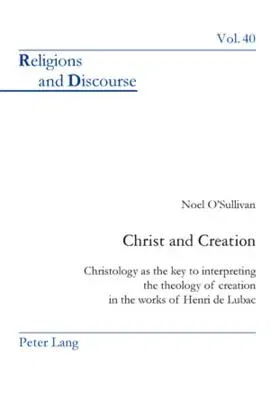Reverend Noel O'Sullivan
(Author)Christ and Creation: Christology as the key to interpreting the theology of creation in the works of Henri de LubacPaperback, 22 December 2008

Qty
1
Turbo
Ships in 2 - 3 days
In Stock
Free Delivery
Cash on Delivery
15 Days
Free Returns
Secure Checkout

Part of Series
Religions and Discourse
Print Length
496 pages
Language
English
Publisher
Peter Lang Copyright AG - Ipsuk
Date Published
22 Dec 2008
ISBN-10
3039113798
ISBN-13
9783039113798
Description
Product Details
Author:
Book Format:
Paperback
Country of Origin:
CH
Date Published:
22 December 2008
Dimensions:
22.86 x
15.24 x
2.54 cm
Genre:
Christian
ISBN-10:
3039113798
ISBN-13:
9783039113798
Language:
English
Location:
Bern
Pages:
496
Publisher:
Series:
Weight:
657.71 gm